|
On How Do I Book?, Christina had the opportunity to interview Beth Reekles about rom coms and why we love this kind of lit!
Check out some of Beth's books!
Sincerely Yours, Anna Sherwood (releasing in the UK on November 9, 2023!)
Faking It (US release is February 13, 2024!) The Kissing Booth Lockdown on London Lane And here's a list of our recs from the episode:
0 Comments
Representation is great! Serving your readers well-rounded characters in a variety of ages, races, genders, levels of ability, sexual orientations, etc etc etc is amazing. It’s the right thing to do, and that reflects in the readers who choose to read diversely.
However, it’s important to be diverse in your diversity. What does this mean? It means not “tokenizing” your nonwhite, noncis, nonstraight, nonmale characters. It means having various people of color, not just one Black dude. It means showing all kinds of women doing all kinds of things. It means having disabled characters beyond one who uses a wheelchair. And for our purposes here in June, it means writing characters on the queer spectrum.
It’s cool to write gay characters. We love a little mlm / wlw energy. Write gay people! Hell yeah! We support you! However, if you just write the one gay couple, it may come across like you don’t know what the BTQIA+ stands for. It may come across a bit tokeny.
The thing with The Gays™ is they travel in packs. Queer friends have queer friends. Just like how a volleyball player is probably friends with other volleyball players because they share perspective and interests, queer people tend to hang out. So it’s actually pretty unrealistic to write one gay person or couple out in the world by themselves. So what do you do? Add more of The Gays™? No! It’s time to explore the BTQIA+. Why keep returning to the LG when there are five-plus (omg the plus is actually a plus) other letters to worry about? It’s crucially important to include not only “a queer character” in your book, but to incorporate the queer spectrum. *rainbow jazz hands* You are not required nor expected to write your book to include One Lesbian Character, One Gay Character, One Bisexual Character, One Transgender Character, One Intersex Character, One Asexual Character, and One (oh, let’s sayyyyyyyyyy) Polyamorous Character. This isn’t Gay Lord of the Rings. But if your goal is to include queer characters and you don’t explore all the flags, then you’re falling short. written by Christina Kann
The short answer: Anyone!
The longer, much more accurate answer: Anyone who will write their queer characters with the same level of respect and dignity and research that they would any other character. Queer characters should exist in stories, the same way they exist in the real world. Even if you’re not part of the LGBTQIA+ community, any world you create needs to acknowledge that queerness is part of life, part of story, part of humanity. Plus, writing stories is about blending our own unique reality with creative license, with imagination and deep ponderance of the world around us, including the parts we don’t know everything about. Great writers have great empathy, the ability to imagine what it’s like to live in someone else’s shoes. And wouldn’t this world, and literature in general, be incredibly boring if authors only wrote characters like themselves? What’s important is how you write queer characters. Here are some things you need first.
Here are some things to keep in mind as you think about your characters.
We love celebrating queer literature, so we’ve pulled together some of our favorites. If you haven’t checked these out, please, be our guest!
Red, White, and Royal Blue by Casey McQuiston
What happens when America's First Son falls in love with the Prince of Wales?
When his mother became President, Alex Claremont-Diaz was promptly cast as the American equivalent of a young royal. Handsome, charismatic, genius―his image is pure millennial-marketing gold for the White House. There's only one problem: Alex has a beef with the actual prince, Henry, across the pond. And when the tabloids get hold of a photo involving an Alex-Henry altercation, U.S./British relations take a turn for the worse. Heads of family, state, and other handlers devise a plan for damage control: staging a truce between the two rivals. What at first begins as a fake, Instragramable friendship grows deeper, and more dangerous, than either Alex or Henry could have imagined. Soon Alex finds himself hurtling into a secret romance with a surprisingly unstuffy Henry that could derail the campaign and upend two nations and begs the question: Can love save the world after all? Where do we find the courage, and the power, to be the people we are meant to be? And how can we learn to let our true colors shine through? Casey McQuiston's Red, White & Royal Blue proves: true love isn't always diplomatic. Storygraph review: kaebee_ “Loved, loved, absolutely loved this book. One of my all time favs this year by far. There were so many times where I just sat and laughed at something in this book and then moments where I held my breath and wished. Also definitely recommend listening to the audiobook and reading the book at the same time. Makes those funny moments even more funny.” The House in the Cerulean Sea by TJ Klune
Linus Baker is a by-the-book case worker in the Department in Charge of Magical Youth. He's tasked with determining whether six dangerous magical children are likely to bring about the end of the world.
Arthur Parnassus is the master of the orphanage. He would do anything to keep the children safe, even if it means the world will burn. And his secrets will come to light. An enchanting love story, masterfully told, The House in the Cerulean Sea is about the profound experience of discovering an unlikely family in an unexpected place—and realizing that family is yours. Storygraph review: audrey01 “There are two types of authors in this world: the ones that don’t impact you and the ones that do. TJ Klune is the latter. This book seems to have all the elements you would want: love, adventure, self-discovery and self-reflection all cooked up in a wonderful 398 pages. You’ll melt at Chauncey’s kindness, Lucy and Talia’s sass, Sal’s growth, Phee’s adventurous nature and Theodore’s quiet yet moving heart. But even more, you’ll find a love story that’s highlighted by the simple moments like a disagreement between two philosophers. A love story made real. Dear god I absolutely loved this story! I don’t want to spoil anything else but I will say two more things: special mention Calliope, Zoe and Helen (which btw I want more of!) and special mention to all these gorgeous gorgeous parts of the book (p 116, 119, 124, 158, 180, 182, 194, 208-209, 223, 231, 239, 247, 280, 283, 305, 307, 326, 333, 336, 338, 341, 360, 372, 376, 383, 396. A magical experience that I would recommend to anyone!” Kings, Queens, and In-Betweens by Tanya Boteju
Judy Blume meets RuPaul's Drag Race in this funny, feel-good debut novel about a queer teen who navigates questions of identity and self-acceptance while discovering the magical world of drag.
Perpetually awkward Nima Kumara-Clark is bored with her insular community of Bridgeton, in love with her straight girlfriend, and trying to move past her mother's unexpected departure. After a bewildering encounter at a local festival, Nima finds herself suddenly immersed in the drag scene on the other side of town. Macho drag kings, magical queens, new love interests, and surprising allies propel Nima both painfully and hilariously closer to a self she never knew she could be--one that can confidently express and accept love. But she'll have to learn to accept lost love to get there. From debut author Tanya Boteju comes a poignant, laugh-out-loud tale of acceptance, self-expression, and the colorful worlds that await when we're brave enough to look. Storygraph review: mstanley79 “This book felt like coming home. It felt like a hug. It felt safe in the best way possible. I wanted to disappear into it and soak up all the magic.” The Stonewall Reader by New York Public Library with Edmund White (Contributor)
June 28, 2019 marks the fiftieth anniversary of the Stonewall uprising, which is considered the most significant event in the gay liberation movement, and the catalyst for the modern fight for LGBTQ rights in the United States. Drawing from the New York Public Library's archives, The Stonewall Reader is a collection of first accounts, diaries, periodic literature, and articles from LGBTQ magazines and newspapers that documented both the years leading up to and the years following the riots. Most importantly the anthology spotlights both iconic activists who were pivotal in the movement, such as Sylvia Rivera, co-founder of Street Transvestites Action Revolutionaries (STAR), as well as forgotten figures like Ernestine Eckstein, one of the few out, African American, lesbian activists in the 1960s. The anthology focuses on the events of 1969, the five years before, and the five years after. Jason Baumann, the NYPL coordinator of humanities and LGBTQ collections, has edited and introduced the volume to coincide with the NYPL exhibition he has curated on the Stonewall uprising and gay liberation movement of 1969.
Storygraph review: wowshecanread “WOW I loved this book. Being able to read first-hand accounts of life as a queer person during the ‘60s from numerous points of view was absolutely illuminating in every sense of the word. For me, each story I read added another layer to the world I was able to visualize in my head, helping me imagine what felt like the real, immersive 3D world that these writers and activists once lived in.” The Seven Husbands of Evelyn Hugo by Taylor Jenkins Reid
Aging and reclusive Hollywood movie icon Evelyn Hugo is finally ready to tell the truth about her glamorous and scandalous life. But when she chooses unknown magazine reporter Monique Grant for the job, no one is more astounded than Monique herself. Why her? Why now?
Monique is not exactly on top of the world. Her husband has left her, and her professional life is going nowhere. Regardless of why Evelyn has selected her to write her biography, Monique is determined to use this opportunity to jumpstart her career. Summoned to Evelyn's luxurious apartment, Monique listens in fascination as the actress tells her story. From making her way to Los Angeles in the 1950s to her decision to leave show business in the '80s, and, of course, the seven husbands along the way, Evelyn unspools a tale of ruthless ambition, unexpected friendship, and a great forbidden love. Monique begins to feel a very real connection to the legendary star, but as Evelyn's story near its conclusion, it becomes clear that her life intersects with Monique's own in tragic and irreversible ways. The Seven Husbands of Evelyn Hugo is "Tinseltown drama at its finest" (Redbook): a mesmerizing journey through the splendor of old Hollywood into the harsh realities of the present day as two women struggle with what it means--and what it costs--to face the truth. Storygraph review: thebookishgamerr “Honest to God, this book... I can't put into words. Just... READ IT. LGBTQ+, bi-racial, all different types of races and people; so good and so beautifully handled.” Golden Girls Forever: An Unauthorized Look Behind the Lanai by Jim Colucci
The complete, first-ever Golden Girls retrospective, packed with hundreds of exclusive interviews, behind-the-scenes and never-before-revealed stories, more than two hundred color and black-and-white photos, commentary, and more.
They were four women of a certain age, living together under one roof in Miami--smart and strong Dorothy, airhead Rose, man-hungry belle Blanche, and smart-mouthed matriarch Sophia. They were the Golden Girls, and for seven seasons, this hilarious quartet enchanted millions of viewers with their witty banter, verve, sass, and love, and reaffirmed the power of friendship and family. Over thirty years after it first aired, The Golden Girls has become a cult classic, thanks to fan fiction, arts and crafts, podcasts, hundreds of fan blogs and websites, and syndication. Now, Golden Girls Forever pays homage to this wildly popular, acclaimed, and award-winning sitcom. Drawing on interviews with the show's creators, actors, guest stars, producers, writers, and crew members, Jim Colucci paints a comprehensive portrait of the Girls both in front of the cameras and behind the scenes. Bursting with fun facts, anecdotes, reminiscences, and insights, Golden Girls Forever is the ultimate companion to the show for fans old and new. Storygraph review: nicolemhill “This is the greatest book I have ever read. I am not exaggerating. This is the ur-text for the rest of my life.” All Boys Aren’t Blue by George M. Johnson
In a series of personal essays, prominent journalist and LGBTQIA+ activist George M. Johnson explores their childhood, adolescence, and college years in New Jersey and Virginia. From the memories of getting their teeth kicked out by bullies at age five, to flea marketing with their loving grandmother, to their first sexual relationships, this young-adult memoir weaves together the trials and triumphs faced by Black queer boys.
Both a primer for teens eager to be allies as well as a reassuring testimony for young queer men of color, All Boys Aren't Blue covers topics such as gender identity, toxic masculinity, brotherhood, family, structural marginalization, consent, and Black joy. Johnson's emotionally frank style of writing will appeal directly to young adults. Storygraph review: redlikeroses “I usually don't pick up memoirs-it's just not my thing. I usually don't like them. All Boys Aren't Blue however, is an exception. “As a bisexual, I always have had a craving since childhood to see myself in other people. My struggles, my heartbreak, my fear and my love. This book did that. I truly could relate to all the trauma and hope that George Johnson has gone through, though we may have been from different backgrounds. “Reading this was like reading a part of my soul, a part that has been tucked away for so long I started to doubt, even wish it didn't exist. After all, who wants to be afraid for their lives for being different? Johnson ends it by saying "Whether this book is a bestseller or a flop, if one person is helped by my story, then it was all worth it." (297) “It was worth it. Thank you Mr. Johnson.” The Starless Sea by Erin Morgenstern
Zachary Ezra Rawlins is a graduate student in Vermont when he discovers a mysterious book hidden in the stacks. As he turns the pages, entranced by tales of lovelorn prisoners, key collectors, and nameless acolytes, he reads something strange: a story from his own childhood.
Bewildered by this inexplicable book and desperate to make sense of how his own life came to be recorded, Zachary uncovers a series of clues--a bee, a key, and a sword--that lead him to a masquerade party in New York, to a secret club, and through a doorway to an ancient library, hidden far below the surface of the earth. What Zachary finds in this curious place is more than just a buried home for books and their guardians--it is a place of lost cities and seas, lovers who pass notes under doors and across time, and of stories whispered by the dead. Zachary learns of those who have sacrificed much to protect this realm, relinquishing their sight and their tongues to preserve this archive, and also those who are intent on its destruction. Together with Mirabel, a fierce, pink-haired protector of the place, and Dorian, a handsome, barefoot man with shifting alliances, Zachary travels the twisting tunnels, darkened stairwells, crowded ballrooms, and sweetly-soaked shores of this magical world, discovering his purpose--in both the mysterious book and in his own life. Storygraph review: amhud1030 “This is a favorite for me, and this is a reread however my first time listening to the audio. Which I highly recommend as the narration is excellent! “I find it difficult to describe this book All I can say is every time I read it, it consumes me and I can’t read anything else. I must give this book my full attention. “It seems per other reviewers that this tends to be a love it or hate it book for many. For me it is a love, one of my favorites. “This book is stories within, stories that are non linear however the characters and stories are all woven together. “It is so visually descriptive you feel like you are in these places, and can see, touch, smell and taste what’s being described.” Wilder Girls by Rory Power
It's been eighteen months since the Raxter School for Girls was put under quarantine. Since the Tox hit and pulled Hetty's life out from under her.
It started slow. First the teachers died one by one. Then it began to infect the students, turning their bodies strange and foreign. Now, cut off from the rest of the world and left to fend for themselves on their island home, the girls don't dare wander outside the school's fence, where the Tox has made the woods wild and dangerous. They wait for the cure they were promised as the Tox seeps into everything. But when Byatt goes missing, Hetty will do anything to find her, even if it means breaking quarantine and braving the horrors that lie beyond the fence. And when she does, Hetty learns that there's more to their story, to their life at Raxter, than she could have ever thought true. Storygraph review: swamp_wytch “This book was so good. The pacing was great, and the core story is haunting. I wish it hadn't ended so abruptly, but it feels like it's setting up for a sequel, and if that's the case I'll buy it ASAP” Sistersong by Lucy Holland
King Cador’s children inherit a land abandoned by the Romans, torn by warring tribes. Riva can cure others, but can’t heal her own scars. Keyne battles to be seen as the king’s son, although born a daughter. And Sinne dreams of love, longing for adventure.
All three fear a life of confinement within the walls of the hold, their people’s last bastion of strength against the invading Saxons. However, change comes on the day ash falls from the sky – bringing Myrdhin, meddler and magician. The siblings discover the power that lies within them and the land. But fate also brings Tristan, a warrior whose secrets will tear them apart. Riva, Keyne and Sinne become entangled in a web of treachery and heartbreak, and must fight to forge their own paths. It’s a story that will shape the destiny of Britain. Storygraph review: irfoxwriter “An absolutely brilliant book! I adored the characters and found myself very emotionally attached to all three main protagonists, despite sometimes disagreeing with their choices. I loved that it is written in first person present - unusual but so compelling and allows you to feel very close to the characters.” Loveless by Alice Oseman
Georgia has never been in love, never kissed anyone, never even had a crush – but as a fanfic-obsessed romantic she’s sure she’ll find her person one day. As she starts university with her best friends, Pip and Jason, Georgia’s ready to find romance, and with her outgoing roommate on her side and a place in the Shakespeare Society, her ‘teenage dream’ is in sight.
But when her romance plan wreaks havoc amongst her friends, Georgia ends up in her own comedy of errors, and she starts to question why love seems so easy for other people but not for her. With new terms thrown at her — asexual, aromantic — Georgia is more uncertain about her feelings than ever. Is she destined to remain loveless? Or has she been looking for the wrong thing all along? Storygraph review: geodrite “growing up as a hopeless romantic aroace without realizing i was aroace was terrifying because i always felt like i was broken in some way when other people described their experiences with sexuality and romantic attraction, but the older i get the more i realize just how many of us aroaces are out there. it's so liberating to finally see the representation and recognition that i needed and i hope that no one ever has to feel like they're alone again.” Iron Widow by Xiran Jay Zhao
The boys of Huaxia dream of pairing up with girls to pilot Chrysalises, giant transforming robots that can battle the mecha aliens that lurk beyond the Great Wall. It doesn’t matter that the girls often die from the mental strain.
When 18-year-old Zetian offers herself up as a concubine-pilot, it’s to assassinate the ace male pilot responsible for her sister’s death. But she gets her vengeance in a way nobody expected—she kills him through the psychic link between pilots and emerges from the cockpit unscathed. She is labeled an Iron Widow, a much-feared and much-silenced kind of female pilot who can sacrifice boys to power up Chrysalises instead. To tame her unnerving yet invaluable mental strength, she is paired up with Li Shimin, the strongest and most controversial male pilot in Huaxia. But now that Zetian has had a taste of power, she will not cower so easily. She will miss no opportunity to leverage their combined might and infamy to survive attempt after attempt on her life, until she can figure out exactly why the pilot system works in its misogynist way—and stop more girls from being sacrificed. Storygraph review: cristina_m_casas “I will always root for feminine rage so Zetian was someone who was easy to get behind. I really appreciated how her initial mission was over so quickly & so much of the book was her constantly pivoting & honestly going a little power mad. “The relationship development was so amusing to me because as a reader it was fairly obvious where it was heading but the characters are so oblivious. “I couldn’t answer a single question you asked me about the chrysalises or the war; but the vibes were excellent!! I look forward to the sequel & the author’s inevitable book about the French Revolution. “This book majorly gave the hunger games for me despite them being so different” This Is How You Lose the Time War by Max Gladstone, Amal El-Mohtar
From award-winning authors Amal El-Mohtar and Max Gladstone comes an enthralling, romantic novel spanning time and space about two time-traveling rivals who fall in love and must change the past to ensure their future.
Thus begins an unlikely correspondence between two rival agents hellbent on securing the best possible future for their warring factions. Now, what began as a taunt, a battlefield boast, becomes something more. Something epic. Something romantic. Something that could change the past and the future. Except the discovery of their bond would mean the death of each of them. There’s still a war going on, after all. And someone has to win. That’s how war works, right? Cowritten by two beloved and award-winning sci-fi writers, This Is How You Lose the Time War is an epic love story spanning time and space. Storygraph review: vicsbookishthings “This book has my soul in the palm of its hand. The prose, the beautiful descriptions of love, the nicknames, the banter are *chef’s kiss* the best things I’ve ever read.” Nimona by ND Stevenson
Nemeses! Dragons! Science! Symbolism! All these and more await in this brilliantly subversive, sharply irreverent epic from ND Stevenson. Featuring an exclusive epilogue not seen in the web comic, along with bonus conceptual sketches and revised pages throughout, this gorgeous full-color graphic novel has been hailed by critics and fans alike as the arrival of a "superstar" talent.
Nimona is an impulsive young shapeshifter with a knack for villainy. Lord Ballister Blackheart is a villain with a vendetta. As sidekick and supervillain, Nimona and Lord Blackheart are about to wreak some serious havoc. Their mission: prove to the kingdom that Sir Ambrosius Goldenloin and his buddies at the Institution of Law Enforcement and Heroics aren't the heroes everyone thinks they are. But as small acts of mischief escalate into a vicious battle, Lord Blackheart realizes that Nimona's powers are as murky and mysterious as her past. And her unpredictable wild side might be more dangerous than he is willing to admit. Storygraph review: kaseycanread “I loved every second of this” The Midnight Girls by Alicia JasinskaIn a snow-cloaked kingdom, two wicked rivals secretly compete for the pure heart of a prince, only to discover they might be falling for each other. Karnawał season is a time for mischief and revelry. For the next few weeks, all will be wintry balls, glittery disguises, and nightly torch-lit sleigh-parties. Unbeknownst to the merrymakers, two uninvited girls join the fun. Zosia and Marynka are drawn to each other the moment they meet, until they discover they're rivals, who both have their sights set on the prince's heart. If one consumes a pure heart, she'll gain immeasurable power. Marynka plans to bring the prince's back to her patron in order to prove herself. While Zosia is determined to take his heart and its power for her own. Their ambition turns into a magical contest with both girls vying to keep the prince out of the other's grasp, even as their attraction to one another grows. But their attempts on his life draws the attention of the city that would die for him, and suddenly their escalating rivalry might cost them not just their love for each other, but both their lives. Storygraph review: chuuzone “oh this had EVERYTHING i wanted... ya sapphic fantasy with the two mcs being the "i fucking hate you pls just drop dead so i can win this round you infuriate me so bad oh my god i wanna kiss you so hard" kind of rivals who get such a thrill from fighting and competing with each other that the sexual tension is coming off from the pages in waves and you're waiting for them to kiss in the middle of the battle, the gay ass prince x knight side characters who also hate each other but not really because they have underlying affections for one another, all the banter between the mcs mid-fight, and the banter between one of the mcs and the prince who she's supposed to kill, THE "DON'T TOUCH HER!" TROPE BUT SAPPHIC, the kiss scene, everyone is gay I NEED MORE” written by Grace Ball These days, libraries are so much more than physical books. Librarians don’t just find books or make reading recommendations (though they’re still great at that), they also make a wide variety of important resources available to their entire community. And you don’t even have to go to the physical library to access them–much of those services and resources are available online, both on library websites and through apps on your phone, computer, tablet, or e-reader. Libby (by Overdrive) Libby is essentially the digital version of your library. Once you create an account using your library card number, you’ll have access to thousands of e-books and audiobooks you can read immediately from your phone, computer, and even your Kindle or e-reader. You can search for a specific title or author in a specific format, or browse through genres and librarian-curated guides like new releases, kids’ classics, books by Black authors, queer stories, and more. The app was created in June 2017 and is the most popular library app, likely because of its wide selection and its simple, clean design. In less than six years, over one billion books have been checked out through the app. In fact, the billionth title checked out through Libby happened on January 21 of this year (An Unwanted Guest by Shari Lepena, if you’re interested). Much like the physical books in the library, your library system has a specific number of digital copies available of each e-book or audiobook it offers, so some popular titles might not be available at a moment’s notice. But never fear–on Libby, you can put titles on hold just like you would at your library, and the app will let you know about how long you’ll have to wait for that book and will notify you when it’s available. In fact, notifications are one of the best parts of using a library app: Libby will notify you when the due date for a book you’ve checked out is coming up (so you can re-check it out if you need to), and if a book you were searching for has been added. It’ll also keep track of what you’ve previously borrowed, and you can make personal book lists, like “TBR,” “favorite middle grade,” or whatever you want! Pro Tip: If you’re as big a book nerd as the staff at Wildling, you know that sometimes you hear about a great book and you simply must read it right now! In that case, may we recommend belonging to multiple library systems (the author of this post belongs to five *humble brag*) so that you’re more likely to find an available copy of what you want when you want it. The app is available for Android, iOS and Windows devices. Hoopla Hoopla is another popular library app that offers e-books and audiobooks, but it also offers thousands of graphic novels and comics, music, movies, and TV shows. Some of the newest, most popular music albums (like Taylor Swift’s Midnights) or TV shows are available on Hoopla, and just like all the other library apps you love, they’re all free. Hoopla also offers something called “BingePass,” which gives you days of unlimited access to online content like The Great Courses, the Highlights collection, Kidz Vidz, storytime videos for kids, and more. Hoopla also offers “Kids Mode” so parents can feel totally comfortable letting their kids browse the vast selection of music, TV, and movies. Kanopy If Hoopla isn’t available from your local library, there’s a good chance that they offer access to Kanopy instead. Kanopy doesn’t offer books, but it’s specifically for videos. Through Kanopy, you can stream over 30,000 classic and indie movies, documentaries, and television series. So get downloading! Remember those times when your doctor’s appointment was taking longer than expected or you got stuck at the DMV and you cursed yourself for forgetting your book at home? Thanks to library apps, as long as you have a phone with you, you’ll never be without a book to read or an album to listen to or a movie to watch. Library apps are free, easy to use and access, and full of hours of entertainment and information.
The number of bookish podcasts out there truly seems infinite. There’s a podcast for the whole book spectrum, from writing to reading to marketing, and more. It’s comforting to know there’s something out there for you no matter what you’re looking for, but it can feel a little overwhelming at the same time. Where do you even start? Well, we’re highlighting some of our favorites in three categories: book recommendations, the craft of writing, and author marketing.
Book Recommendations
The Craft of Writing
Author Marketing Information
Well, there you have it! Use these recommendations as a jumping off point because this list just scratches the surface of the bookish podcast land. And please let us know about any of your favorites that we didn’t mention here. We’re always looking for new bookish podcasts to listen to!
written by Grace Ball
“Father, I did not know you were there, in the kitchen,” I said.
“I see,” he responded. “Well, Sarah, I have just come in from the garden. I do not know why you did not see me.” Yikes! Wow, that’s some seriously bad dialogue. You know the saying about porn? “It’s hard to define, but I know it when I see it.” Yeah, that’s bad dialogue. Bad dialogue can absolutely, single-handedly ruin your book. Getting a grasp on writing organic dialogue is one of the most important things a writer can do for their craft. But how do you spot bad dialogue? And how do you write organic dialogue? Contract.
People almost exclusively use contractions in speech unless it’s for emphasis. “I don’t know where your hat is,” might escalate to “Dude, I DO NOT KNOW where your hat is!” But in regular, ongoing speech, it’s better to err on the side of contracting than to separate out all your “do not”s.
Don’t say their name.
This is probably the biggest offender we see in new authors’ unedited books. People don’t say each other’s names! Again, unless it’s for emphasis, people literally don’t say each other’s names when they’re speaking to each other. Why would they?
In the above example (silly, I know), Father calls Sarah Sarah and Sarah calls Father Father. Sure, it’s only a two-line exchange, and we don’t know what might be going on around them. But say they’re alone. Why would Sarah need to say “Father”? Who else might she be talking to? She’s probably even looking at him. And further, Father certainly doesn’t need to say “Sarah,” as he’s directly answering Sarah’s question. Again, emphasis changes how we speak. “I don’t know where your hat is,” might escalate to “Sarah! I SAID I didn’t know where your hat is!” In a tender moment, a character might say another’s name. But in general, skip the name-calling. We “‘we” being the characters and the readers) all know what’s going on here. Skip dialogue tags when possible.
“Hey,” I said.
“Oh hey, what’s up,” Emily responded. “What are you working on?” I asked curiously. “Just painting,” Emily answered. She waved her paintbrush and giggled. “Ah,” I said. “That’s cool,” I added. Ugh, I’m exhausted just writing that example! Reduce dialogue tags so your readers don’t get exhausted! Of course, dialogue tags can be crucially important for making a dialogue exchange clear. However, they are also criminally overused in amateur writing. When dialogue happens in real life (I think we just call that “talking”?), it happens quickly. For your reader to perceive your dialogue as organic, it helps if it can be read quickly. Dialogue tags slow down your dialogue. They’re clutter. They almost never bring new, true meaning into your book. Cut dialogue tags you don’t need—for example, if two characters are talking back and forth, you can seriously limit your dialogue tags, as it’s as simple to keep track of those conversations as it is to watch tennis. Even when you’re writing scenes with bigger casts, you can limit dialogue tags. Cut a dialogue tag and opt instead to include some body language that augments the dialogue. Cut a dialogue tag and add some inner monologue. Cut a dialogue tag and trust your reader to be able to follow. Even with a cast of several characters, if two are talking back and forth for several lines, you simply don’t need dialogue tags. Trust your reader! They aren’t stupid. They’re actually probably quite skilled at reading. So trust that they can follow what’s happening even when you don’t label every single word. Mess up.
You know what humans definitely don’t do? Talk good. Haha! Short of a highly skilled professional public speaker, humans no talk no good. We say dumb shit. We mess up and keep going. We mess up and stop and start over! We start a sentence and halfway through we forget what we were saying.
People don’t talk in complete sentences, not really. We speak in bursts. In linguistics, they aren’t even called “sentences,” because they’re different; they’re called “utterances,” and their rules are different. None of your characters should be speaking in complete sentences all of the time. It’s just not realistic! Write your characters messing up. Especially in emotionally charged moments, your characters won’t be speaking perfectly. It shows their humanity if they talk dumb when mad, just like us. Write each character to speak differently.
People speak differently. All people, even similar people, speak differently. By writing each of your characters to speak differently, you make their speech more organic—and you make your character fuller and more convincing at the same time!
Some people stutter a lot. Some people use big words because they read a lot. Some people use big words because they want to sound like they read a lot. Some people don’t talk often. Some people never stop talking. Some people are interrupters; some people wait for an opening. Some people have accents; some people have speech impediments. Some people speak quickly and energetically, off the cuff, while others are more measured and plan carefully. It’s been said (by someone, idk who) that you should be able to tell who in your book is speaking without any dialogue tag at all, just by looking at how they speak. Like much writing advice, this is an excellent guide, but don’t take it literally. You can’t make every single utterance reflect a whole personality. But generally, readers should be able to notice differences in characters’ speech patterns. Read it aloud.
The only way to truly evaluate if your dialogue sounds organic is to read it aloud to yourself or to someone else. When the words come out of your mouth, they should feel natural. You’ll notice really quickly that you need more contractions, that your lines are too stilted, that your characters all sound the same, when you start reading aloud.
Dialogue can make or break a book. A book with a weak plot or theme can be literally held aloft by its characters and their dialogue. Artful, realistic dialogue is the hallmark of a skilled author. So do your work and make sure that all your characters are speaking organically and authentically to themselves. written by Christina Kann We'll keep this short and sweet, because we've already wasted so much of our time on Twitter. We're ditching our Twitter account.
When Elon Musk bought Twitter last year, the Wildlings thought to ourselves, "Ah, another megalomaniac billionaire buying a platform we all use for his own personal clout. Yeah, that happens in late-stage capitalism." When he started laying off his security and content moderation staff, we were like, "Ummmm okay Elon, how are we handling security then??? Who is making sure Twitter is a safe space?" He has now given us our answer: No one is making sure Twitter is a safe space, because it's not. In April, Twitter "quietly rolled back a portion of its hateful conduct policy that included specific protections for transgender people," according to CNN. "Twitter also removed a line from the policy detailing certain groups of people often subject to disproportionate abuse online, including 'women, people of color, lesbian, gay, bisexual, transgender, queer, intersex, asexual individuals, and marginalized and historically underrepresented communities.'” Wow! Ouch. The entire Wildling staff is on that list. Moreover, Wildling has always been committed to nurturing safe spaces for writers from all walks of life to develop their craft. Unlike Twitter, Wildling particularly aims to work with writers from marginalized groups and uplift their voices. Twitter is coming for our allyship and our identity. They are no longer protecting us, our authors, and our community. So we're out. Please connect with us on Instagram, Facebook, TikTok, or through our mailing list.
It's Library Week! Not only that, but today is Library Workers Day, so please celebrate with us by giving our chat with Nico D'Archangel, library technician and chair of the Virginia Library Association's LGBTQIA+ Forum, a listen.
Grace Ball 00:23 Welcome to How Do I Book? by Wildling Press. We like to chat about book writing, book publishing, book marketing, and of course, book reading. We're trying to help new and experienced authors develop their craft, widen their perspectives, and learn to get a little wild every once in a while. I'm Grace and I am so stoked, because, in case you haven't heard, today is Library Workers Day. And in fact, it's Library Week, all week long. So the celebration will continue. But today we're celebrating by having a little chat with the one and only Nico D'Archangel, who is a library technician at the Richmond Public Library and currently the chair of Virginia Library Association's LGBTQIA+ Forum. So, Nico, thank you so much for joining us. Nico D'Archangel 01:17 Thank you for having me. Grace Ball 01:18 Yeah! Alright, so before we get started, Nico, what are your pronouns? Nico D'Archangel 01:22 My pronouns are he/him, please. Grace Ball 01:25 Nico, would you mind just letting our listeners know a little bit about yourself? Nico D'Archangel 01:28 Sure. I've got experience in archives, interlibrary loan, use services, and circulation so far, but of course, it being a library, there's always more to learn. And I'm very much an activist for accessibility in libraries, as well as making sure libraries are safe places for both queer and BIPOC staff as well as patrons. Grace Ball 01:49 Yes, thank you so much. That's awesome. So just a little bit of context for our listeners, Christina and I had the opportunity to connect with Nico at the Queer and Trans Author Expo event here in Richmond. And we've basically wanted to be your best friends ever since. So I'm super excited to get to talk to you today! So let's get into the interview. Nico, how long have you been with the Richmond Public Library? Nico D'Archangel 02:21 I've been with Richmond Public Library for four years. I started out part time in the children's department here at Main. And then a few months in, I got snagged over to the West End branch. And I got full time over there since then. Grace Ball 02:36 Awesome. That's cool. What kind of led you down this career path? Nico D'Archangel 02:40 No joke, I literally wanted to be a librarian since I was in the second grade, I just absolutely loved reading. Grace Ball 02:44 That's so cool! Nico D'Archangel 02:46 I would help out my school librarian, like making sure all books are in order--they've got to be alphabetical, Dewey Decimal. I just thought it was the best thing ever and absolutely loved reading. And so I started off volunteering at my local library and working my way up, worked in my college library, worked at this library, this part of archives, because I grew up with my dad doing genealogy. And so that's very tied to history and libraries. It's the best thing ever. And one of these days, I will get my master's degree so that I can earn that capital L in librarian. Grace Ball 03:19 Oh, yeah. Man, I know you'll do that. So it sounds like your position, at least with Richmond Public Library, has kind of changed a bit over the years. I'm interested to hear kind of what that transition looked like. And if you could describe a day at work four years ago versus what a day at work now kind of looks like. Nico D'Archangel 03:39 Sure I can do that. Whenever I was hired in the children's department, I was their nights and weekends person. And so I'd be coming in when most of the main staff was getting ready to go home, and then I'd have the late shift, three or four hours at a time, rarely saw anybody. Just got to have fun playing with the books, looking at the new things that come in. I wrote pretty often for the blog in the early days, because I'm like, I'm sitting here, there's no shelving I can do. There's nothing else, so I'm gonna read this book and I'm gonna write about it kind of thing. Today, though, it looks very different from the full time. First thing in the morning, we always get there roughly an hour before we open, do our registers for the day, we print off a holds list. So that's the items people have requested in the last twenty-four hours that are at our branch. And so we go through the whole building trying to find all these books. The list can be anywhere from two to fifteen pages long, depending on the day. Grace Ball 04:36 Wow. Oh my gosh. So do you kind of have an idea of what your day is going to look like before you go in? Or is it a bit of a mystery? Nico D'Archangel 04:44 If it's coming back after a holiday we know it's going to be busy. If it's a really nice day outside we don't have as many people coming in. So one of those rainy, drizzly days we get a lot of families coming in. The West End branch has like a little puzzle and Lego table. Parents will bring their kids in and they'll spend forty-five minutes to an hour, if not all day there, instead of going to the park or whatever, on a Saturday. We get the outside book drop in the morning, before we open and again in the afternoon, just before we close. And as we start off the day, we've got a desk schedule. And so like, usually no more than two hours at a time on the desk. But the desk can consist of answering the phones, helping patrons check out, keeping an eye on the self-checkout station, helping people on the computers, opening the doors for people in the study room. And then when we're not on desk, we've got extracurricular-type programs. So if we're getting ready, like I'm going to be doing a book art program coming up, and so I've gotta like, make sure all my demos are ready and make sure I have all the books I need and all the materials. The children's librarian is looking around for this material for that program, or this the other. So there's a lot of off-desk work that happens that a lot of people don't see. Grace Ball 06:01 Yeah, I bet. What would you say is like the aspect of your job that you love the most? Nico D'Archangel 06:06 Besides my fantastic immediate co-workers, I would not be as happy in the job if it wasn't for them. We're a really good, cohesive group. I like that no two days are going to be the same. There's always something a little bit different, a little bit intriguing, interesting going on. Like, I'm never really going to be bored at the library. Even if I'm just sitting at the desk, I can be writing blogs, I can be researching because someone asked me "What kind of books are like this author?" well, let's find out kind of thing. So I like that flexibility of days, and how every day is a new adventure. Grace Ball 06:47 So kind of the flip side of that question. What would you say is the most challenging part of your job? Nico D'Archangel 06:53 That was the question I had the hardest time thinking about, I think, I would say, managing patron expectations. Because sometimes they come into the library, and they think that we're going to do everything for them. Like we're gonna sit down at the computer next to them, type in their passwords, fill out their resume, submit the job application, or something to that effect, because someone else in another thing that doesn't come to the library says "Oh, yeah! Go to the library. They'll do that for you." Grace Ball 07:24 Right. Nico D'Archangel 07:25 We can help you get on, but we can't handhold and some people really do need that step-by-step help. And because we're having to do so many things, we can't always get that help. And it's frustrating, because we can see the need, but we aren't able to fill it because there's never enough of us at any one time to meet every need. Grace Ball 07:44 So it sounds like you've wanted to be working at a library basically your whole life. But once you really got into it, were there any aspects of working at a library that surprised you or that you think might surprise people? Nico D'Archangel 08:00 I don't know if it's a surprise, per se, but one of the most fascinating things that I think about working at the library is access to books before they're published. Advanced Reader Copies, whether they're digital or physical, I think that's one of the best little perks about working in a library. Read a book before it comes out, and that way you're like, "Hey, this was really good. You should read this." Or, "You like fantasy? Have I got the book for you!" kind of thing. Grace Ball 08:28 That's so fun. You get a little sneak peek. Nico D'Archangel 08:31 Yeah, yeah! It feels like I get to help build the excitement and be a part of the process, helping people enjoy reading. Grace Ball 08:42 Yeah. In what ways do libraries positively impact the community? Nico D'Archangel 08:48 So many different ways: We are warm places when it gets cold. We're cooling stations when it gets hot. People can come into the library for as many hours during the day that we're open, and there's no expectation of spending any money while you're here. You can just exist. You can't go to sleep, but you can exist. So we're help for transient people. Someone that might not have anyone in their family to talk them through a difficult thing online, we can help them figure it out. We have notaries on staff at all our branches, and so we're able to help people notarize things. Some branches only get about ten in a month, but some branches do 150 notaries in a month. So that's obviously something the public uses often. We give community spaces for different people to host programs. If someone wants to make friends doing a crocheting club, they can book up the meeting room every third Saturday and like hey, this is now crochet group, come on and join us. There's all kinds of networking and community building. At our branch we have movies. We show matinees every Tuesday, pop our own popcorn, and for so many people afterward they end up thanking us like, "Thank you so much. We don't have to go to a movie theater and spend this much on a ticket and this much on popcorn. And I have something I'm looking forward to every week." And that's the only day they get out of their house, and the library is that community for them. Grace Ball 10:22 So what can the community do to support libraries? Nico D'Archangel 10:27 Two big things: getting a library card and walking in the building. So getting that library card, that's a statistic that our board and foundation are looking at, like how many library cards do we have versus how many people are in the population. And we have door count every day, like how many people walked in and out of our door? There's not that many, or we've got so much we need to put more programs here. Let us know what kind of programs you want to see if there's nothing that's there for you. Pre-COVID, there was a group that met at like a pub to do trivia kind of thing. But it was led by the library. Grace Ball 11:05 Cool! Nico D'Archangel 11:06 So it's just like, get a library card and visit the library. That way it shows everybody we have the statistics to say, yes, the library is important. Grace Ball 11:16 That makes total sense. So I know that Richmond Public Library has a volunteer program. Do you want to tell us a little bit more about that? Nico D'Archangel 11:26 Sure, you can apply either online or in person. You can specify which branch you want to work at or just say any of them. Our person in charge of the volunteers will give specific jobs if you don't know what you want to do. Or say you're a grandparent and you miss your grandkids, so you want to do a storytime kind of thing. We can help facilitate that through the volunteer program. There's weeding our shelves to make sure we have room for new things, shelving, all the new things. There's different projects and events. Unboxing items that come in from publishers, like there's so many things to do that people can volunteer and help with. Our book sale that happens twice a year. It's always exciting! There's always a rush. And every time afterward on social media, "Look at all these books I got for just this much!" It's so cool. And it all comes from either donations or things that were weeded out of our collection--that's all the book sale is--and it does a lot to help the library and a lot of our money come from the book sales now. Grace Ball 11:36 Yeah, the book sale is one of my favorite things. I gotta say. Nico D'Archangel 11:36 Teens can volunteer if they need hours for schools. I know some schools require a certain number of volunteer hours, we can do that. The only thing our volunteer hours can't do is be like court ordered mandated things. We can't work with that one. Grace Ball 12:47 Oh, I see. Nico D'Archangel 12:47 Yeah, there's lots of volunteer options and things that can help any branch. Grace Ball 12:53 So any final thoughts you have on the importance of libraries? Nico D'Archangel 12:58 If I can plug a post I wrote for the library recently? Grace Ball 13:03 Yeah, please! Nico D'Archangel 13:05 It's called Library Myths. I narrowed down like fifteen different myths that people in general say about libraries. And I showed how that's not all of our libraries, like libraries aren't just for kids, they aren't quiet places where you can be shushed if you start talking louder than a whisper. We don't have just books, and a library card doesn't cost any money. Librarians don't get to read all day, even though we would very much like to. Richmond specifically, there are so many counties that we give free library cards to. It's not just people living in the city of Richmond, it's Hopewell, Petersburg, Williamsburg, Chesterfield, Goochland, Hanover, Powhatan, Prince George, they can all get a free library card at Richmond Public Library. Another important thing specifically about Richmond is we got rid of our late fees back just before COVID started. It wasn't helping. The late fees were going to the city, we might see 5% of it. It wasn't helping the library. But once we got rid of it, more people and more items started coming back to the library because there was no longer that financial worry about coming in. They're not going to be hounded for this much money. Because sometimes things happen and books and items get lost. So I like knowing that we only charge if items are lost or damaged now. If you find it, and it's good, we're golden. You don't have anything to worry about anymore. Grace Ball 14:31 Bring it back any ole time. Nico D’Archangel 14:33 Yeah. Grace Ball 14:34 Nice. That's excellent. Great! Well, thank you so much, Nico. As we wrap up, I wanted to give you the opportunity to plug anything you'd like, social media accounts, personal projects. Is there anything you'd like to share? Nico D'Archangel 14:48 If you're a social media person, follow Richmond Public Library, as well as the Virginia Library Association's LGBTQIA+ forum. We're doing a lot in the forum. It started off for like people who work in libraries, but we also do things for the general public, and it's all across the state, not just Richmond-specific, the forum. Grace Ball 15:10 Awesome. Yeah. And I can list those handles in the show notes, so look there for those. Grace Ball 15:17 Thank you again, so much for coming on the pod today, Nico, I had so much fun chatting with you and celebrating you and all the library workers. And I just want to say thank you for all that you do. Nico D'Archangel 15:17 Yayyy! Nico D'Archangel 15:29 Thank you very much. Libraries work because we do. Episode transcribed by Grace Ball |
How Do I Book?We'll try to find the answer to that question in our blog. Archives
August 2023
Categories
All
|

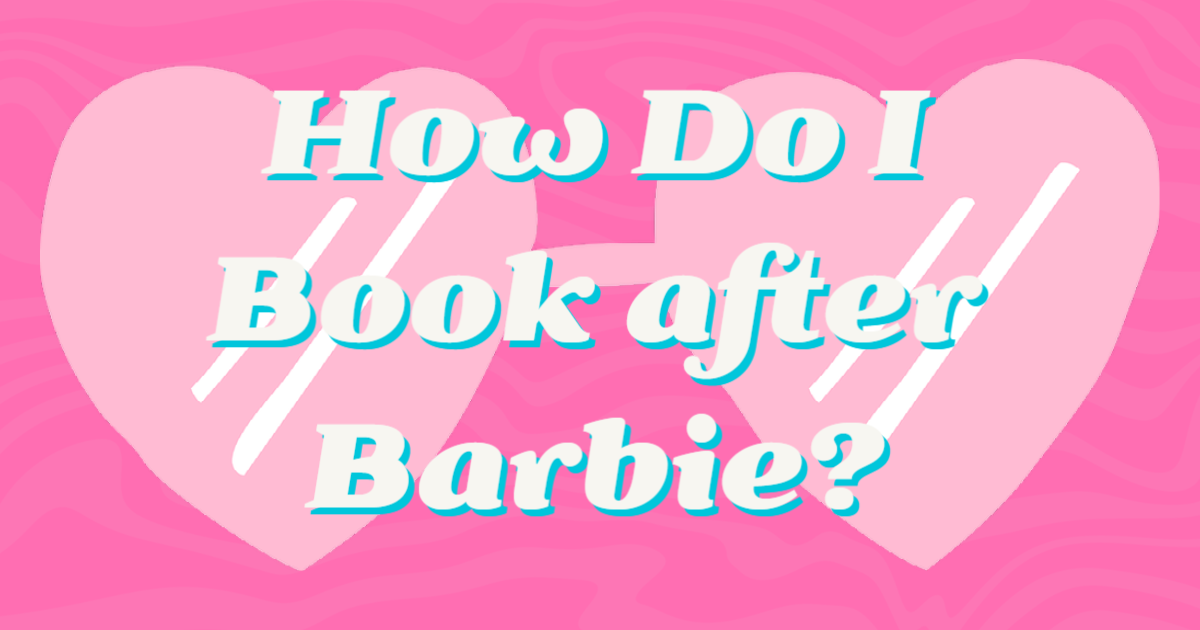
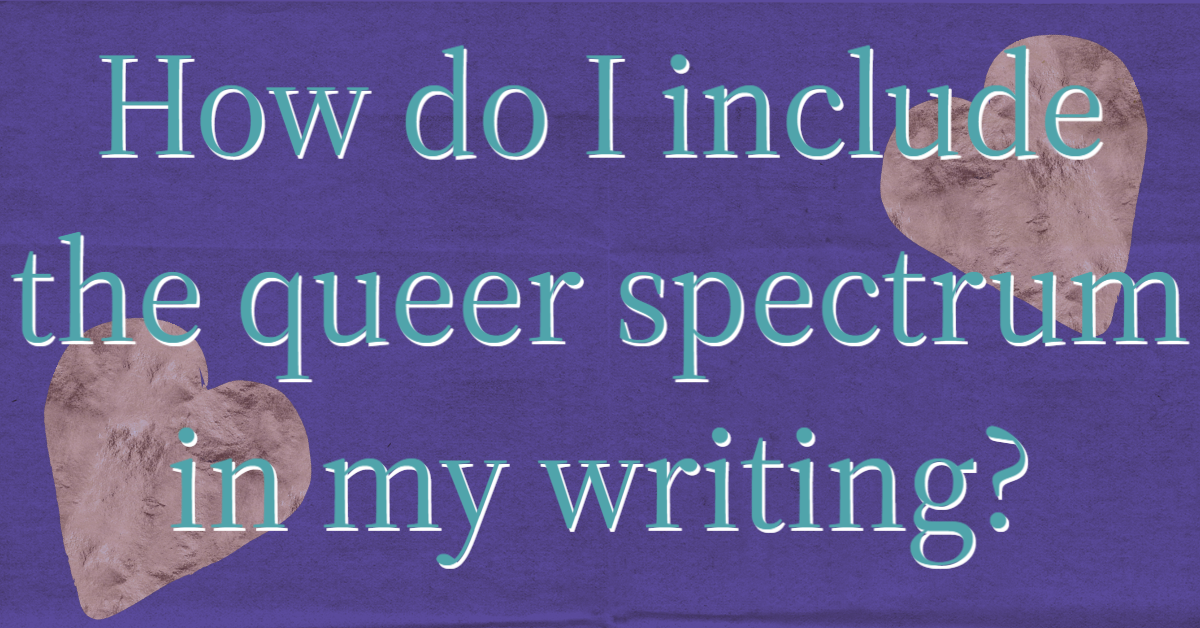
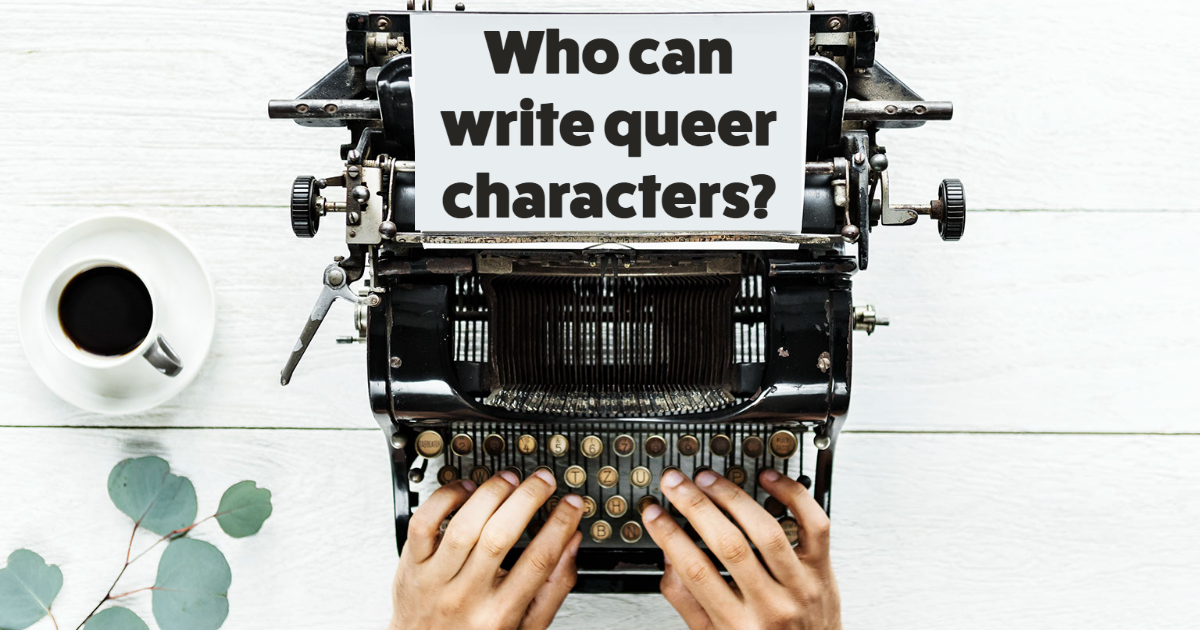
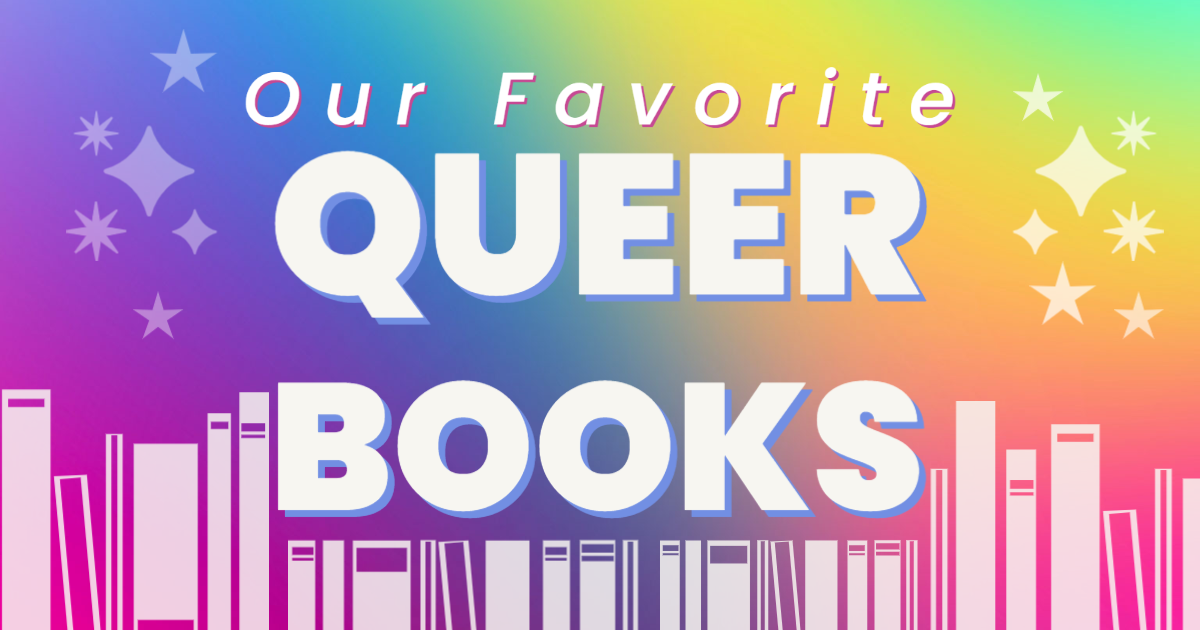
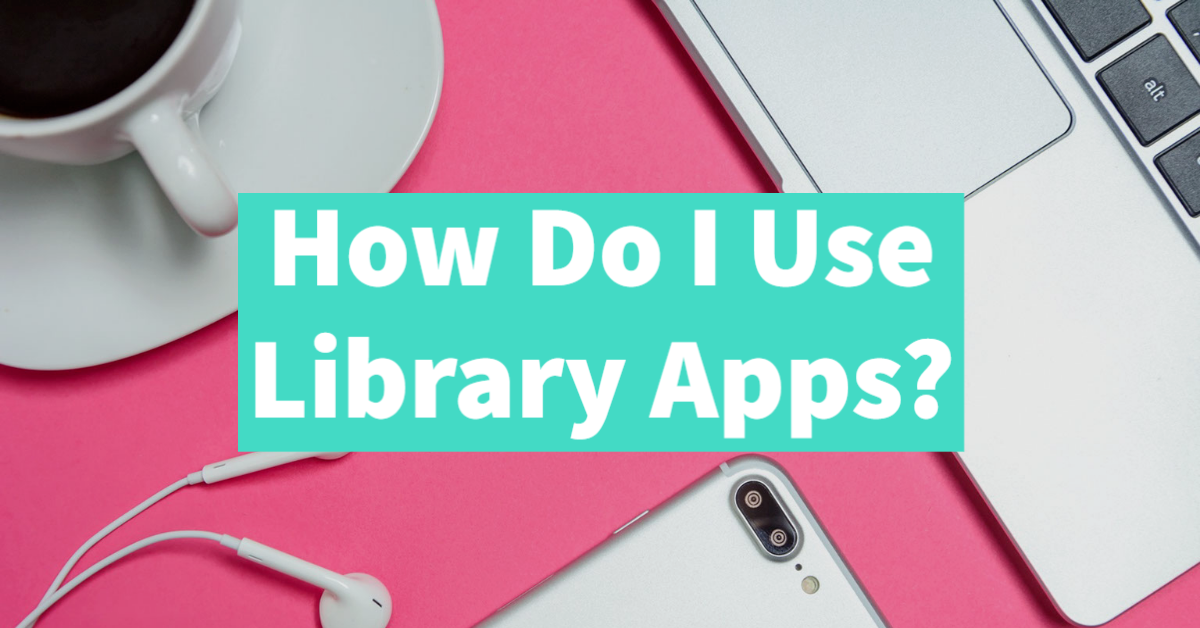
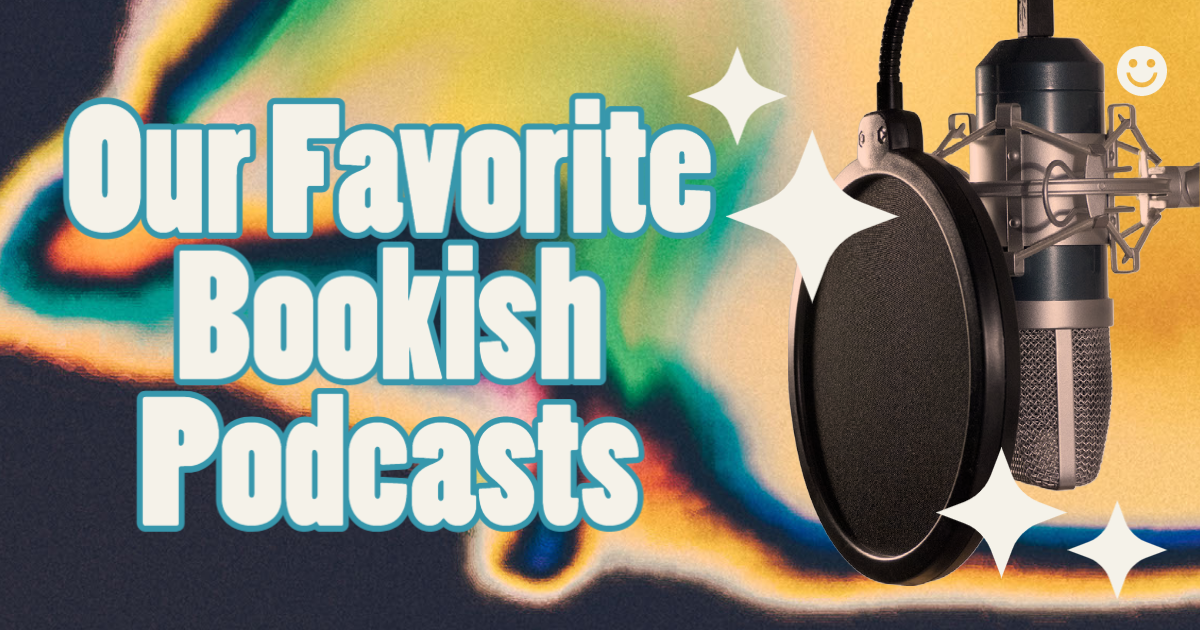
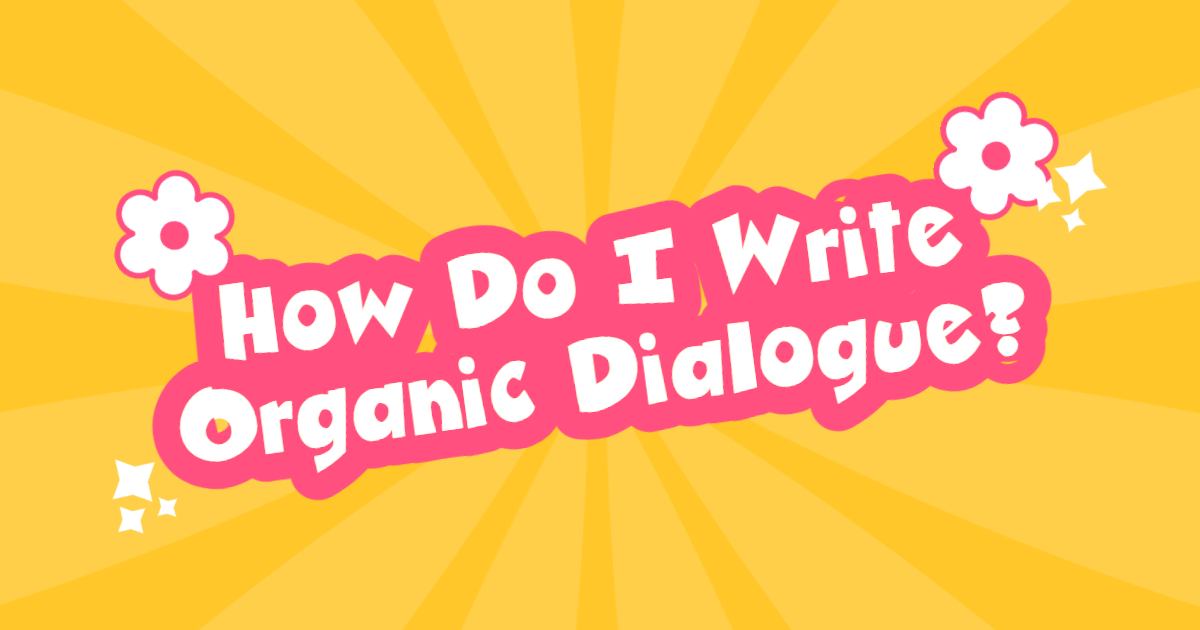
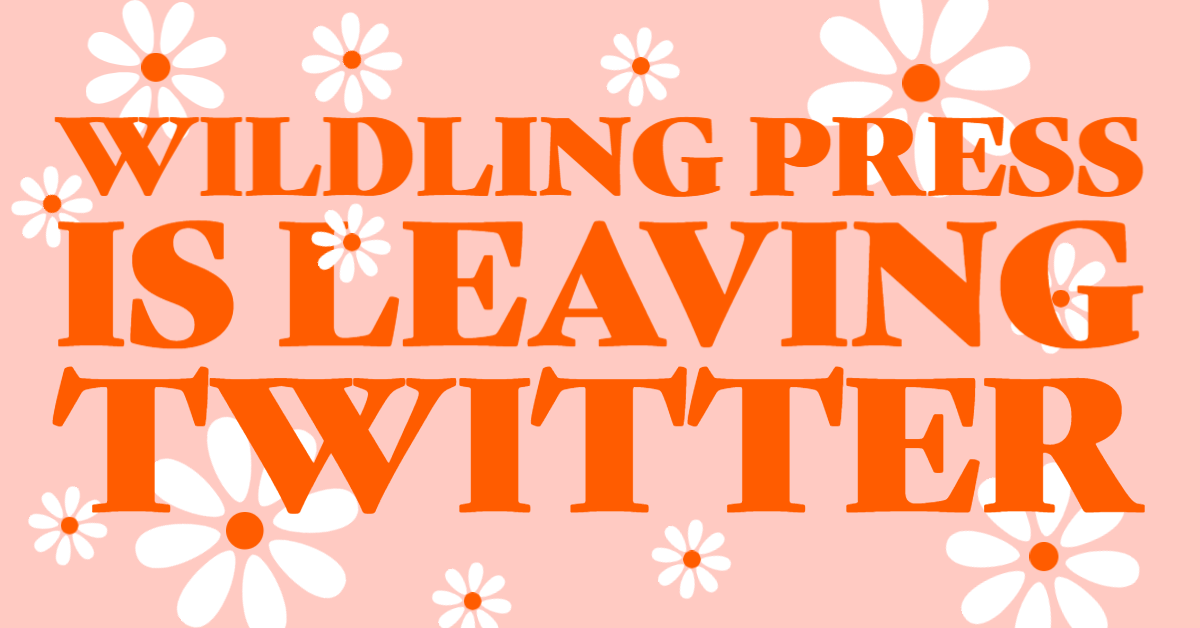
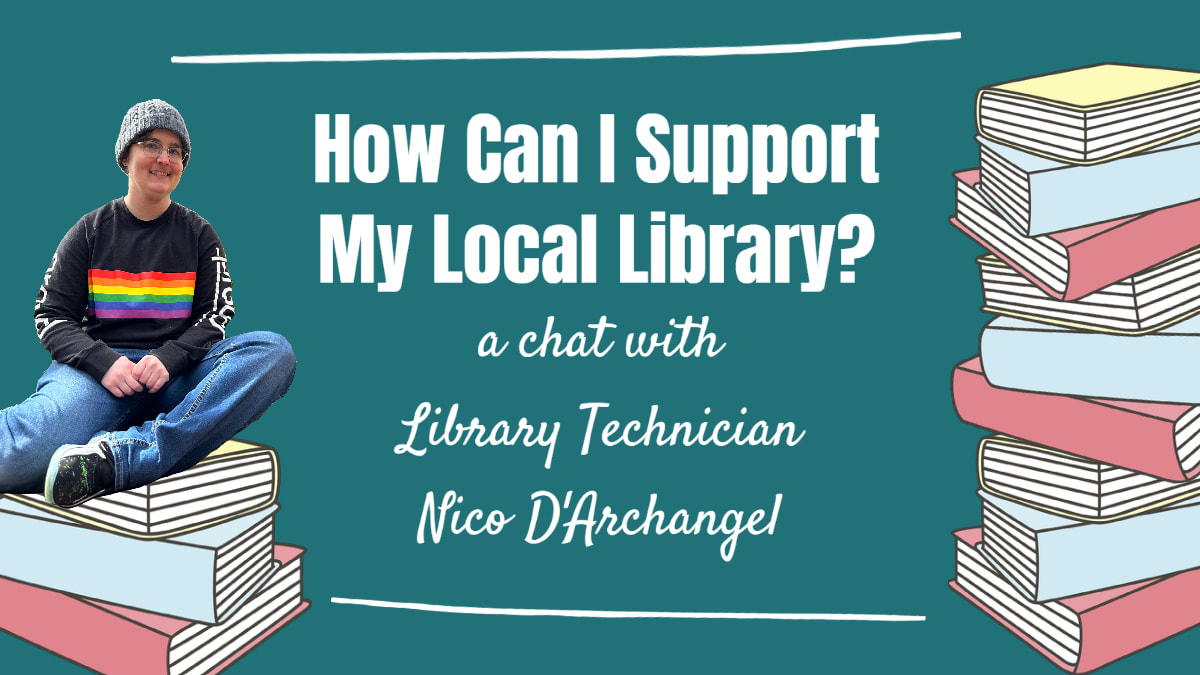
 RSS Feed
RSS Feed